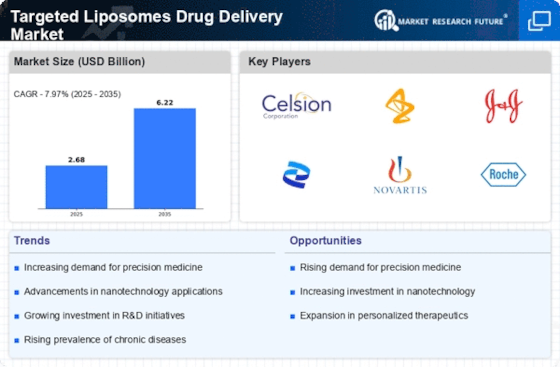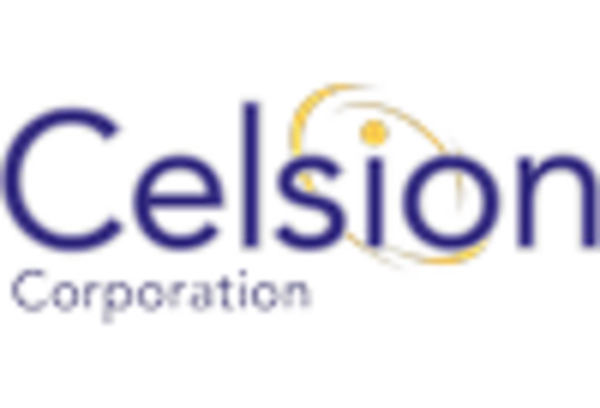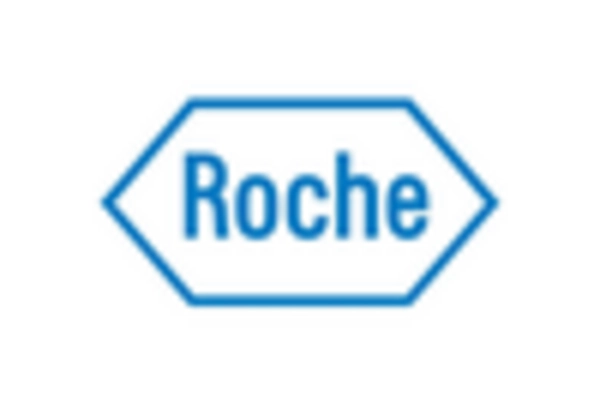Market Share
Targeted Liposomes Drug Delivery Market Share Analysis
The targeted liposomes drug delivery market is undergoing tremendous expansion, driven by the rising need for individualized and efficient drug delivery methods. Liposomes, lipid-based vesicles, are gaining importance for their capacity to encapsulate and transport therapeutic medicines directly to particular cells or tissues, reducing adverse effects. Market participants use a strategic approach by identifying certain disease segments that might benefit from tailored liposomal medication delivery. This entails considerable study to understand the cellular and molecular aspects of illnesses, allowing precise targeting and increased therapy effects. One significant market share positioning approach relies on customization for oncology applications. Targeted liposomes serve a critical role in cancer therapy, delivering chemotherapeutic drugs directly to cancer cells while preserving healthy tissues. Companies concentrate on creating liposomal formulations customized to various kinds of malignancies, therefore garnering a large stake in the oncology drug delivery industry. Targeted liposomes correspond with the ideas of precision medicine, allowing for patient-specific therapy options. Companies use genetic and molecular profile data to generate patient-specific liposomal compositions. This method improves medicine delivery and gives a commercial advantage. Market participants cooperate with pharmaceutical firms, research organizations, and academic centers to improve therapeutics. Collaborations combine medication discovery skills with sophisticated liposomal delivery technology to generate innovative liposomal formulations, boosting market positioning. Targeted liposome drug delivery firms position themselves by creating new biologics delivery systems as biologics become more prominent in contemporary medicine. Liposomes offer biopharmaceuticals with excellent bioavailability and reduced immunogenicity, meeting biologics demand. Market share positioning requires regulatory compliance and quick approval procedures. Companies conduct extensive clinical research to prove liposomal products' safety and effectiveness. Faster regulatory approvals speed up market access, giving a competitive edge. Market leaders explore untapped markets to develop globally. Liposomal compositions tailored to varied populations' healthcare demands increase market penetration. Companies study regional healthcare dynamics to become preferred providers. Liposomal drug delivery methods need constant technical advancements to be competitive. Companies invest in R&D to increase liposomal stability, drug-loading, and release characteristics. Patents protect inventions and strengthen market positioning. Market share positioning requires educating healthcare providers and patients about tailored liposomal medication delivery. Companies use complete marketing techniques, including educational efforts, to promote liposomal formulations over traditional medication delivery. Efficient and cost-effective production processes enable competitive pricing, which affects market share. Streamlining manufacturing and assuring scalability allow enterprises to provide cost-competitive liposomal medication delivery options, expanding their client base. Adopting nanotechnology and AI strengthens commercial position. These innovations improve liposomal drug delivery systems, helping companies keep ahead of healthcare sector expectations.



















Leave a Comment